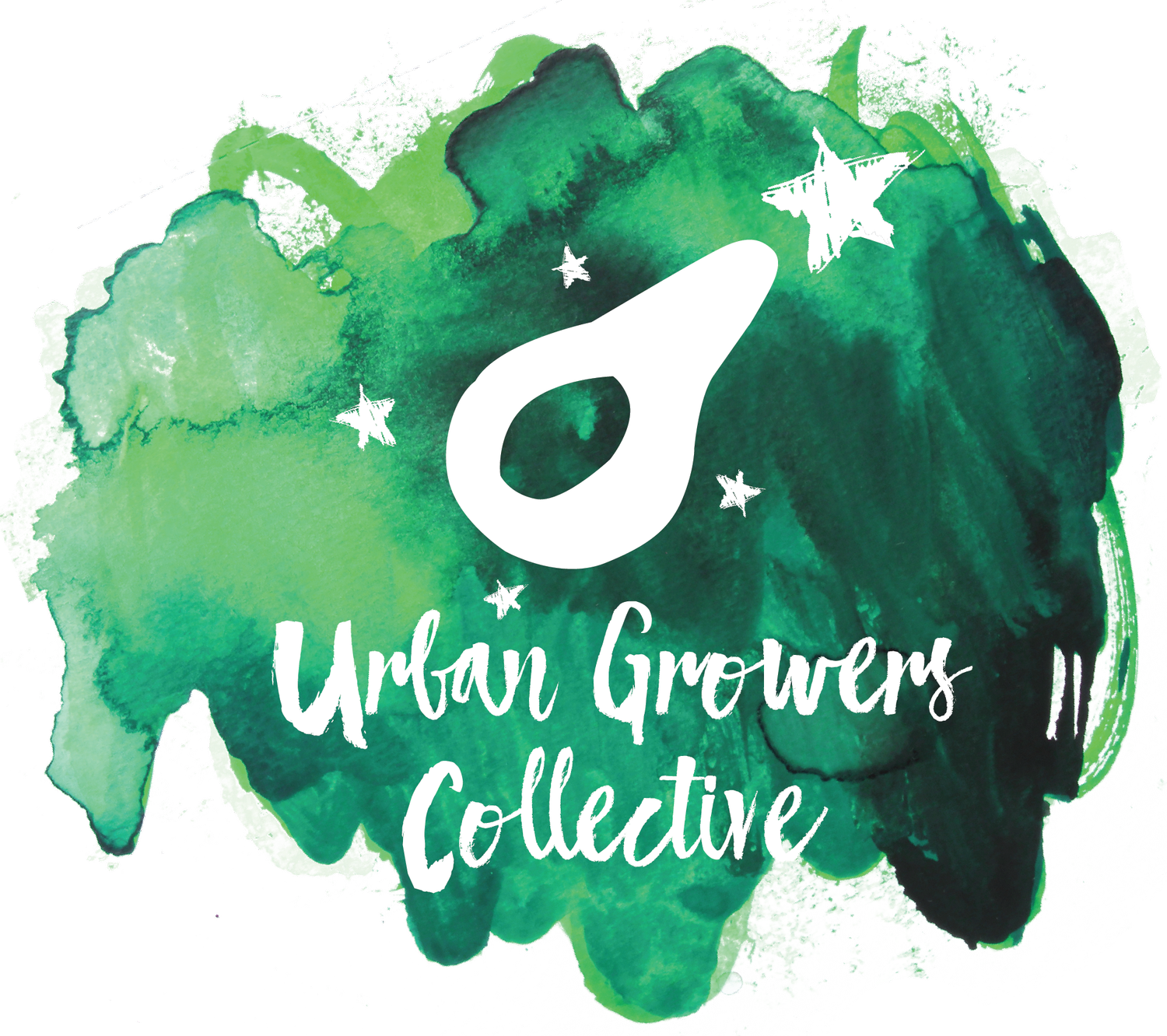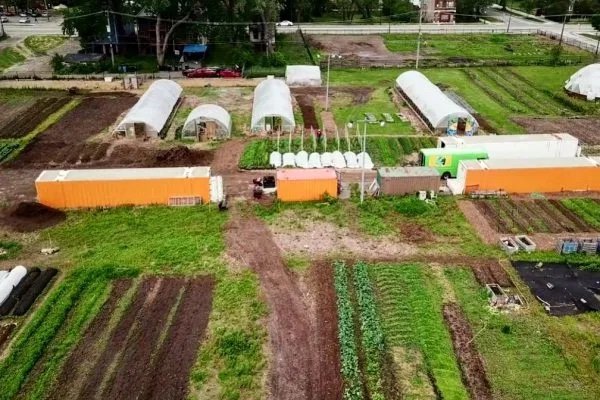Urban Growers Collective’s eight farms support food production, education, leadership development, and more
Our Farms
Urban Growers Collective operates eight farms over 11 acres of land. These farms are production-oriented but also offer opportunities for staff-led education, training, leadership development, and food distribution. Each farm utilizes organic growing methods, intensive growing practices, and year-round production strategies to maximize growing space.
We grow a variety of crops to stock our farm stands, Collective Supported Agriculture (CSA) shares, and the Fresh Moves Mobile Market with a beautiful selection of fresh produce. In addition to fruits and vegetables, we grow culinary and medicinal herbs, edible flowers, and a wide array of ornamental plants for neighborhood beautification. We also raise goats, chickens, and honey bees.
Altgeld Gardens
A Chicago Housing Authority project located in Altgeld, this 2-acre farm is our bee sanctuary used to emphasize the importance of native pollinators. We grow an assortment of Illinois native flowers to provide pollen for the bees and other pollinators that visit our garden.
Are you a beekeeper looking for a space to set up your hives? We may have room for you at our Altgeld Farm! Contact us at info@urbangrowerscollective.org or (773) 376-8882.
Educare Preschool Farm
Bronzeville is home to this 1/4-acre Head-Start preschool garden. Each preschool classroom has its own garden plot that is planned, planted, cared for, and harvested by the children. Students engage in STEAM (science, technology, engineering, art, and math) activities throughout the growing season to help them engage with nature and the food they are growing.
Urban Growers Collective also tends a larger garden at this site, which produces a large variety of crops, including vegetables, herbs, and edible flowers. The produce harvested from the classrooms’ plots and UGC’s garden is shared with the students’ families.
Grant Park
Established in 2005, Grant Park “Art on the Farm” is located on the northwest corner of Ida B. Wells Drive and Columbus Boulevard, kitty-corner to Buckingham Fountain. Right in downtown Chicago, this half-acre farm is a partnership with the Chicago Park District.
This “landscaped” farm is used to teach folks how to grow an abundance of crops in a beautiful way and to explore the intersections of art, creativity, food, and farming. Here, we grow vegetables, culinary herbs, and edible flowers. These crops are planted in a way that demonstrates gardens can be both productive and pretty.
Our Youth Corps ambassadors are trained at this site to grow food and to give free tours to the thousands of people who walk past this site annually.
Green Era Urban Energy Campus
Green Era’s mission is to create more sustainable communities by supporting local food production through better management of biodegradable waste and access to soil. We’re transforming a 9-acre vacant brownfield on the South Side of Chicago into a renewable energy facility and green oasis for economic empowerment, clean energy, fresh produce, and vibrant communities. The 7-acre Green Era Urban Farm will grow 125+ varieties of produce per year, train young farmers, support new food businesses and entrepreneurs, and ultimately build financial security and collective power for historically under-resourced communities. Learn more at greenerachicago.org/campus/urban-farm.
Jackson Park
Located in Hyde Park, the Jackson Park Community Garden is a place where neighbors can come together to grow good, safe food on the South Side. Over 20 community gardeners steward this land preserved by the Chicago Park District. The garden was established in 2006 and is located at the near the intersection of Stoney Island and Marquette Avenue.
UGC welcomes new and returning community gardeners to this site each season. Community garden plots are 10 ft x 10 ft. LINK recipients and those who demonstrate a financial need receive a free plot.
King Drive Community Healing & Resilience Garden
Located at 60th and King Drive, this is a collaborative community garden project to bring neighbors together to grow food.
Roosevelt Square
Established in 2011, this farm is located at the intersection of Washburne and Loomis Street in the heart of Chicago Housing Authority’s Abla and Roosevelt Square homes.
This one-acre urban farm is run by youth who live in the neighborhood. These Youth Corps ambassadors plan, prep, plant, grow, harvest, and sell all of the produce at this site as part of their job training program. The Roosevelt Square Youth Farm produces a variety of crops based on demand from neighbors. With the assistance of the senior home next door to the farm, teens decide what to grow and sell their produce at a weekly on-site farm stand during the growing season.
This farm is a partnership between Urban Growers Collective, the Chicago Housing Authority, and After School Matters.
South Chicago
Clara Schafer Park, located at 9001 S. Mackinaw Ave., was established in 2015 to serve the South Chicago neighborhood. This 14-acre site is designed to engage residents in both food and fitness activities. The park has walking trails along with an urban farm and community garden managed by Urban Growers Collective.
Our South Chicago farm serves four primary functions: providing food, training, mentoring, and land access. Comprised of seven acres of growing space, South Chicago is our largest farm and produces the bulk of our harvests. UGC runs a variety of programming at our South Chicago farm, including Farmer Incubation, Youth Corps, community gardens, workshops, farm stands, community events, and volunteer opportunities.
Our South Chicago farm includes a solar-powered Growing Dome from Growing Spaces. This multipurpose structure allows us to extend our growing season, increase production, propagate herb and vegetable starters early in the year, host workshops and trainings during the colder months, and provide additional growing space during the regular growing season.
About our soil and compost
We do not use existing soil for any of our farming projects, and do not recommend growing in Chicago soil. We go in with the assumption that soil is highly contaminated—lead is the No. 1 contaminant in Chicago soils—and that growers must either use a barrier below new soil or grow in containers with new soil.
The risk of growing in toxic soil is too great in Chicago and would negatively impact the health of communities we are trying to protect. Our crops are only grown in soil that is created at or brought onto our farms.













